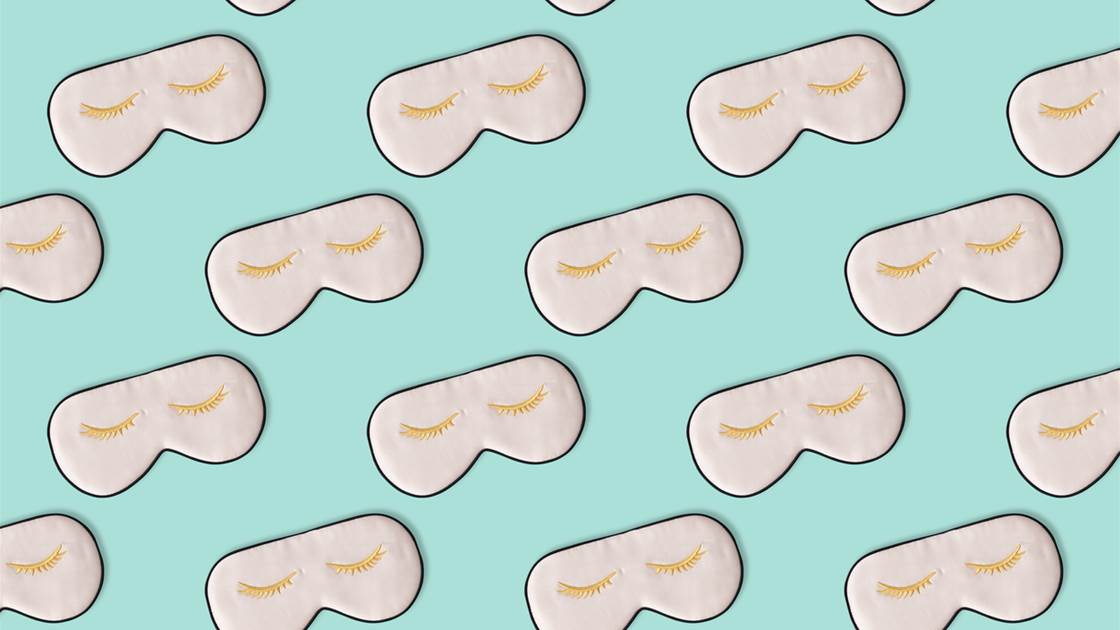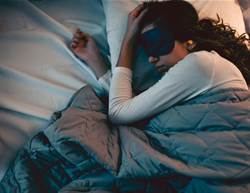Wait a minute—we're supposed to get a good night's sleep to feel great all day? File that under "Things we know we're supposed to do that are impossible." The problem isn't wanting to get a good night's sleep, it's actually making it happen.
And between work, kids and, let's face it, the new season of your favourite show, logging seven to eight uninterrupted hours can feel like a joke. So instead of beating yourself up for yet another crappy night of sleep, use these tips to make the most of what you got.
Don’t delay the inevitable
Remember how you spent all night waking up, drifting off then waking up again? Doing that to yourself come morning via the snooze button just ain't smart. Research shows snooze-button sleep is fragmented sleep (no kidding), and fragmented sleep is not restorative sleep. It's a good rule of thumb for any morning: Set your alarm for the actual time you need to wake up, says sleep medicine specialist Dr Alice Doe, and then actually get up. Snoozing might also make the process of waking up physically take longer: getting the gears turning—like increasing blood flow to the brain—takes some time, but snoozing tells your body it's not actually "go time" yet and can delay those processes.
Give caffeine a fair chance to kick in
Experts typically stick to an upper limit of about 400mg of caffeine a day. On your most sleep-deprived day, if you're not careful, you could hit that benchmark by 11am (hey, we've all been there), but too much coffee can leave you with headaches, heart palpitations and a serious case of the jitters, Doe says. Keep in mind it takes about 30 minutes for caffeine to kick in, so pace yourself throughout the morning and have a cup around noon or 1pm, she says. After that, stick to decaf. "Caffeine takes a long time to be eliminated from your body, so I say no caffeine seven to eight hours before bedtime," Doe says.
Avoid dwelling on it
Never underestimate the power of positive thinking. Yes, you didn't get enough sleep. No, that doesn't guarantee today will be a wash. Put on your favourite top, that special-occasions-only piece of jewellery, a fun lip colour—something for you to feel good about, Doe says, then use it to keep up the sunny attitude throughout the day. "Try not to think too much about the sleepless night or blame it for everything that happens during the day. In time, that can create a negative association that will result in other sleepless nights." It's going to be a challenge, she says, but try to make this a "glass half full" kind of day. It might not make you feel more awake, but studies say positive thinking can help you cope with stressful situations—aka this horror of a sleep-deprived day. Dig deep.
Tackle your tough projects first
Getting through any actual work may be the hardest part of today, aside from resisting the temptation to hit snooze. Budget your energy and get the big stuff out of the way early. Research suggests you've got a two-hour window when you'll be at your best, starting one hour after you wake up, Doe says. If you woke up at 7am, expect to shine between 8 and 10. She suggests tabling any major decisions, whether they're personal or professional, for a more well-rested day. "If you really can't avoid a meeting, try to get some exercise right beforehand so you can concentrate better.” Later in the day, cross off some of those mundane tasks on your to-do list you've been putting off forever.
Sit up straight
A small 2012 experiment asked 110 college students to rate their energy levels before and after walking slouched over for a few paces or doing a few minutes of skipping. After slouching, they rated their energy levels significantly lower than after skipping. We're not saying you should skip to your 4pm meeting (although if you do, please send video), but you should check your posture while you sit there spacing out.
Keep your phone in your bag
With your impaired attention and focus, you really don't need any other distractions. If you want to stay productive at work, turn off your e-mail notifications and power down your phone, or at least get it out of your direct line of sight. "Your concentration can be so decreased that your concept of time goes away," Doe says. You might think you've spent just a quick sec scrolling through Instagram when suddenly half an hour's flown by. "It's best to stay on task and then take more breaks to go outside for a quick walk. Just about anything will be more beneficial, like a quick nap or a coffee break, than just staring at your phone."
Force yourself to move for a little bit
While it feels like the last thing you can drag yourself to do at the moment, exercising is basically guaranteed to help, even if you can only stand it for a few minutes. Luckily, it can be an easy workout. A group of low-key exercisers experienced a bigger reduction in their fatigue than more hard-core sweaters in one study. In fact, strenuous exercise should actually be off the table, since you're at a slightly higher risk of accidents of all types when you're sleep deprived, Doe points out. Exercise improves blood circulation, which in turn improves attention, so sneak in a brisk walk before an important meeting when you're really feeling zonked. Bonus: natural light.










